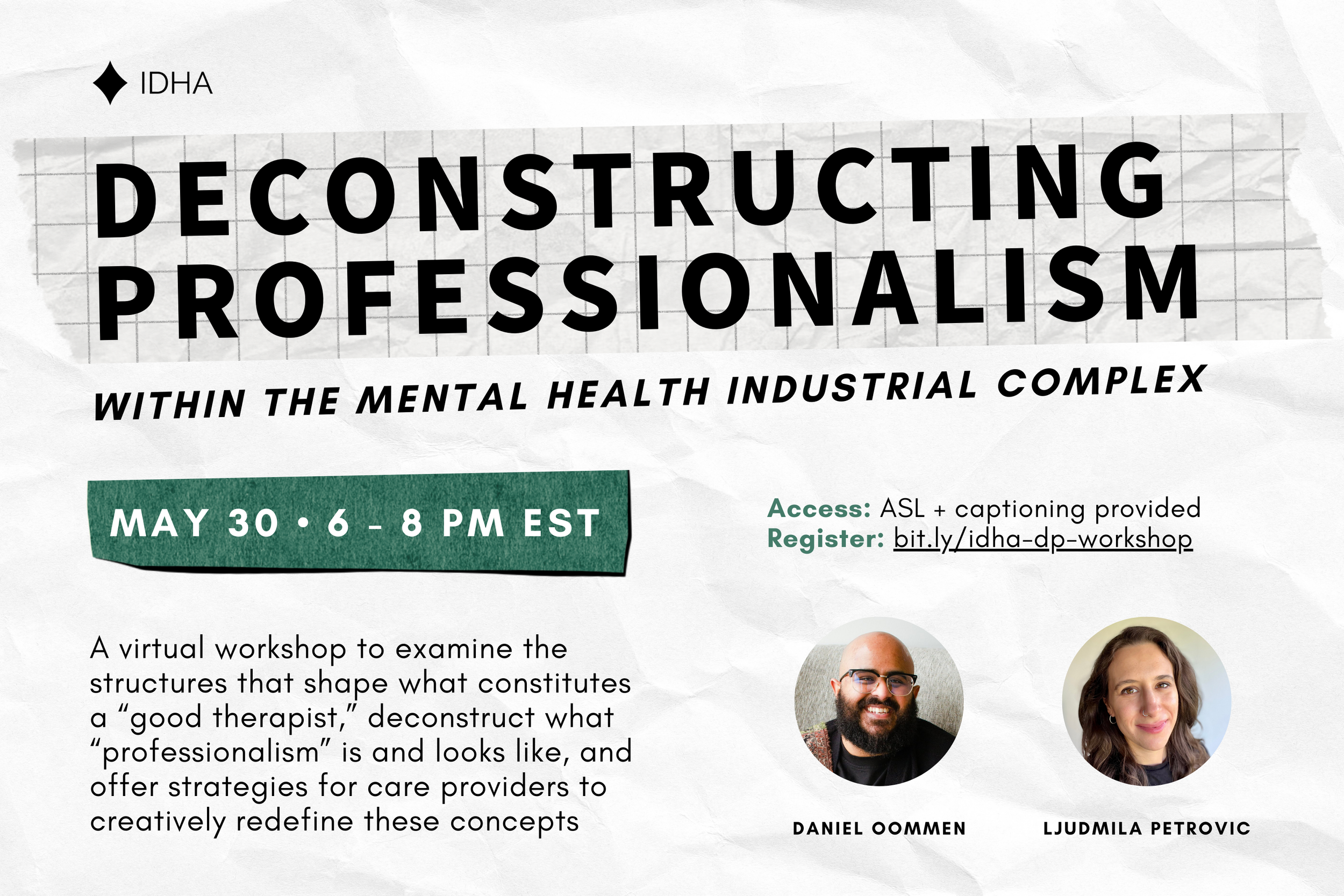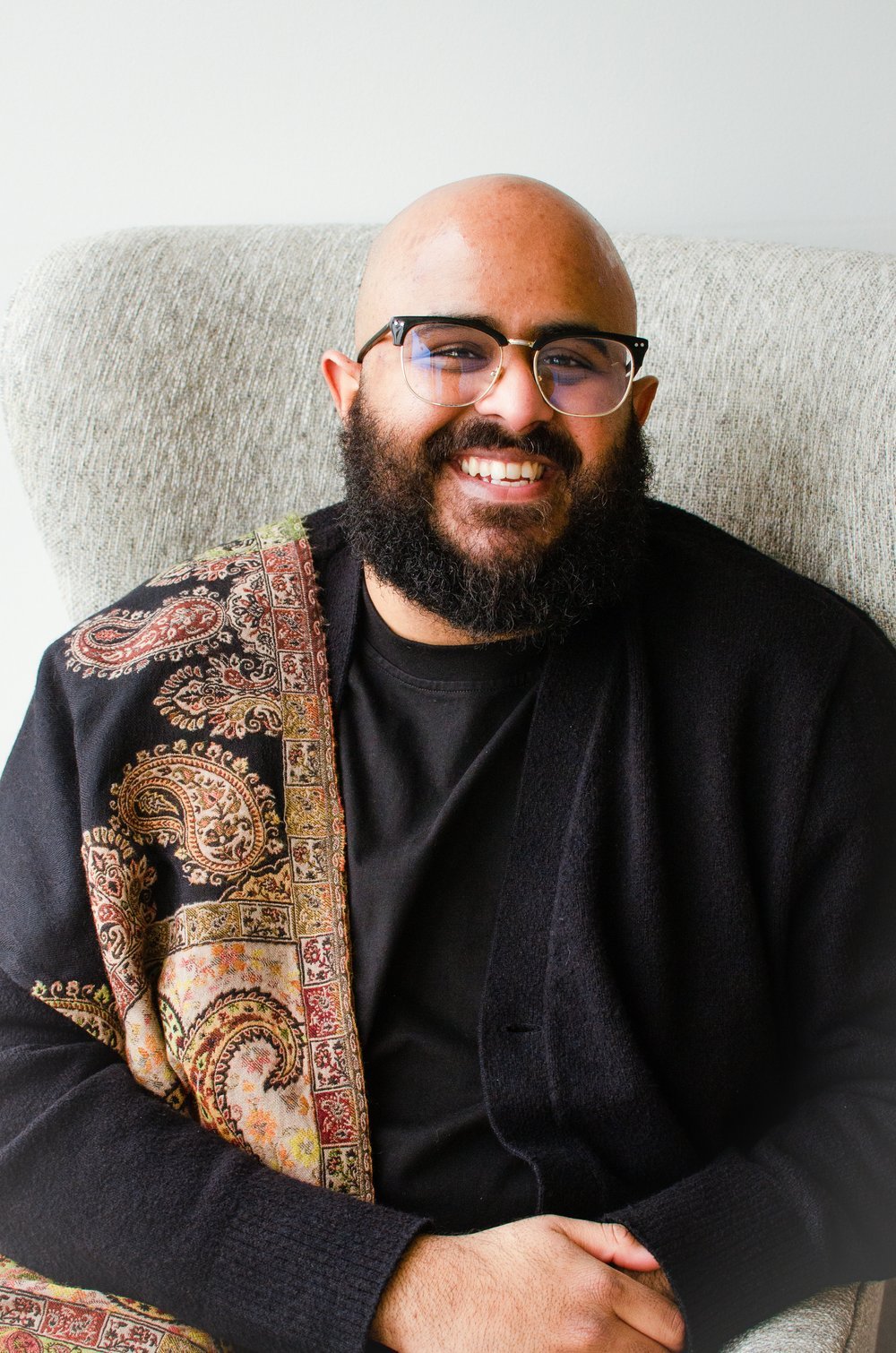About the Event
Within the mental health industrial complex (MHIC), the education and training required to be considered a “good therapist” is gate-kept by “expert therapists” in the field – who are largely male, and almost exclusively white. The MHIC appropriates and repackages knowledge off the backs of marginalized communities, particularly BIPOC and 2SLGBTQIA+ communities, and people with lived experience. Conceptions of “professionalism” are rooted in systems of oppression (e.g. colonialism, white supremacy, ableism, cis-hetero-patriarchy), and often require mental health providers to betray themselves, their communities, and those they seek to support. This manifests, for example, in therapists feeling they can’t speak out about decolonial liberation struggles – including in Palestine. An intersectional approach is critical for practitioners to balance their identities as therapists, individuals, and community members, and to practice in ways that are rooted in an ethics of care.
We invite you to join us on Thursday, May 30 for a 2-hour virtual workshop that will examine the structures that shape what constitutes a “good therapist,” deconstruct what “professionalism” is and looks like, and offer strategies for care providers to creatively redefine these concepts. Facilitators will open by defining who is considered an “expert” within the MHIC, and debunking common myths of “professionalism.” Participants will have the opportunity to unpack these ideas in small groups, culminating in a discussion about ethical considerations to carry forward in this work. This event will share key context and tools for those interested in decolonizing and unsettling mental health practice, and addressing other challenges inherent to care work.
This event is particularly geared towards mental health “professionals,” including but not limited to counselors, social workers, psychologists, psychiatrists, nurses, and peers. People with lived experience, activists, artists, researchers, and other community members are also integral in our efforts to deconstruct professionalism, and encouraged to participate.
Register in advance via Eventbrite to join. After registering, you will receive a confirmation email containing information about how to join.
Donations
IDHA is a small organization that strives to meet the accessibility needs of our community to the best of our ability. Our events are by tiered suggested donation to ensure we can provide closed captions on our events and other programs, though we strive to never turn anyone away. We appreciate donations of any size for those who have capacity to give.
Access
ASL interpretation + automated closed captioning will be provided. The event will be recorded and shared with all registrants. Please submit any additional access needs to contact@idha-nyc.org.
Facilitators
Daniel Oommen
Daniel is a RCC working in the field of sex therapy. They bring an anti-colonial and queer lens to navigating client sexual issues. Their primary client populations are sex workers, and BIPOC folk. They move through the world as a queer, non-binary South Indian immigrant
Ljudmila Petrovic
Ljudmila is a queer, cis, white settler with immigrant experience, born in the former Yugoslavia. She works primarily with survivors of sexualized violence and queer and trans folks. Before becoming a counsellor, she did frontline work with youth, in anti-violence and harm reduction settings. She holds an MA from SFU, where her thesis research focused on identity-building and intergenerational trauma in conflict-generated diaspora.



